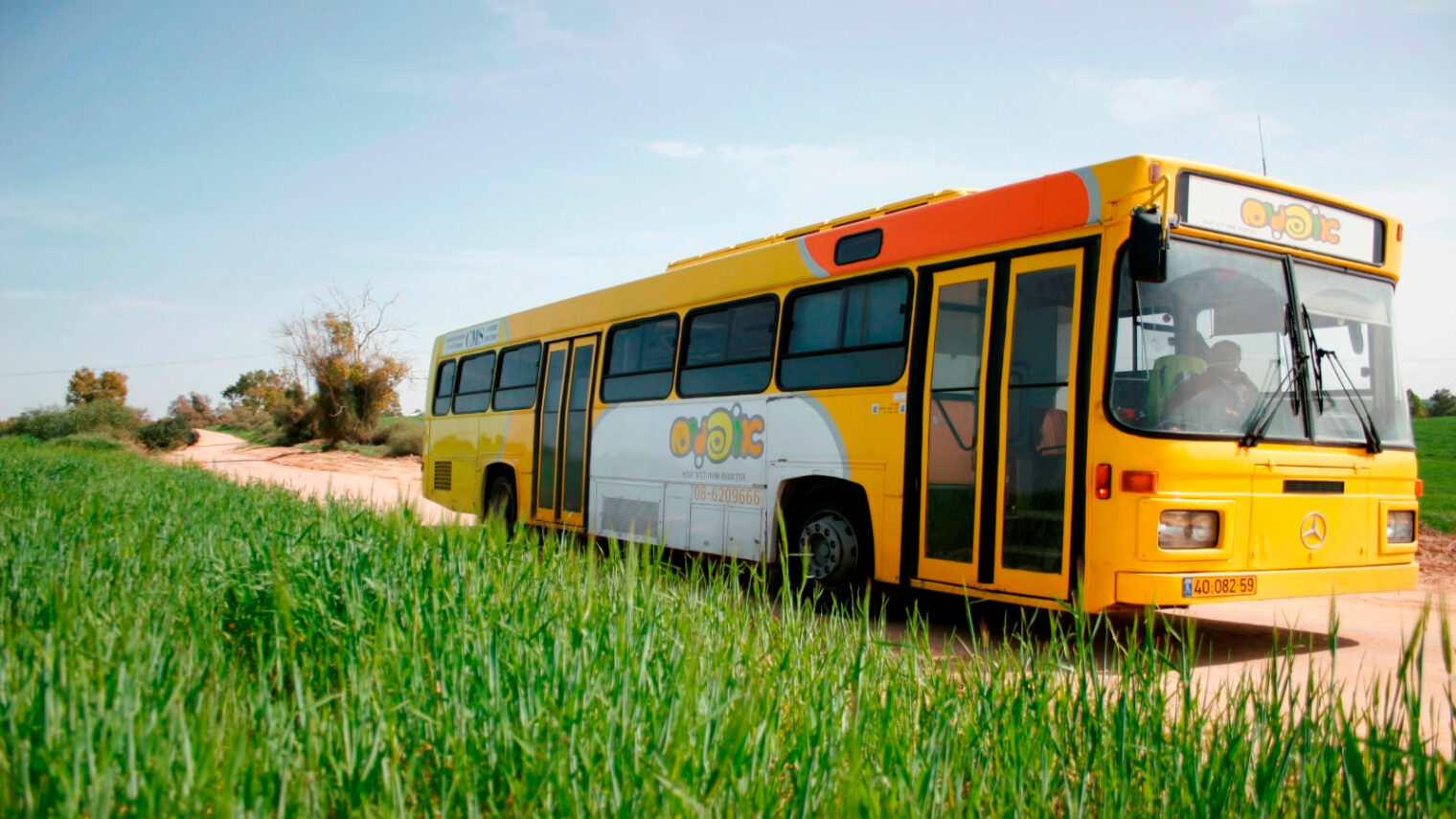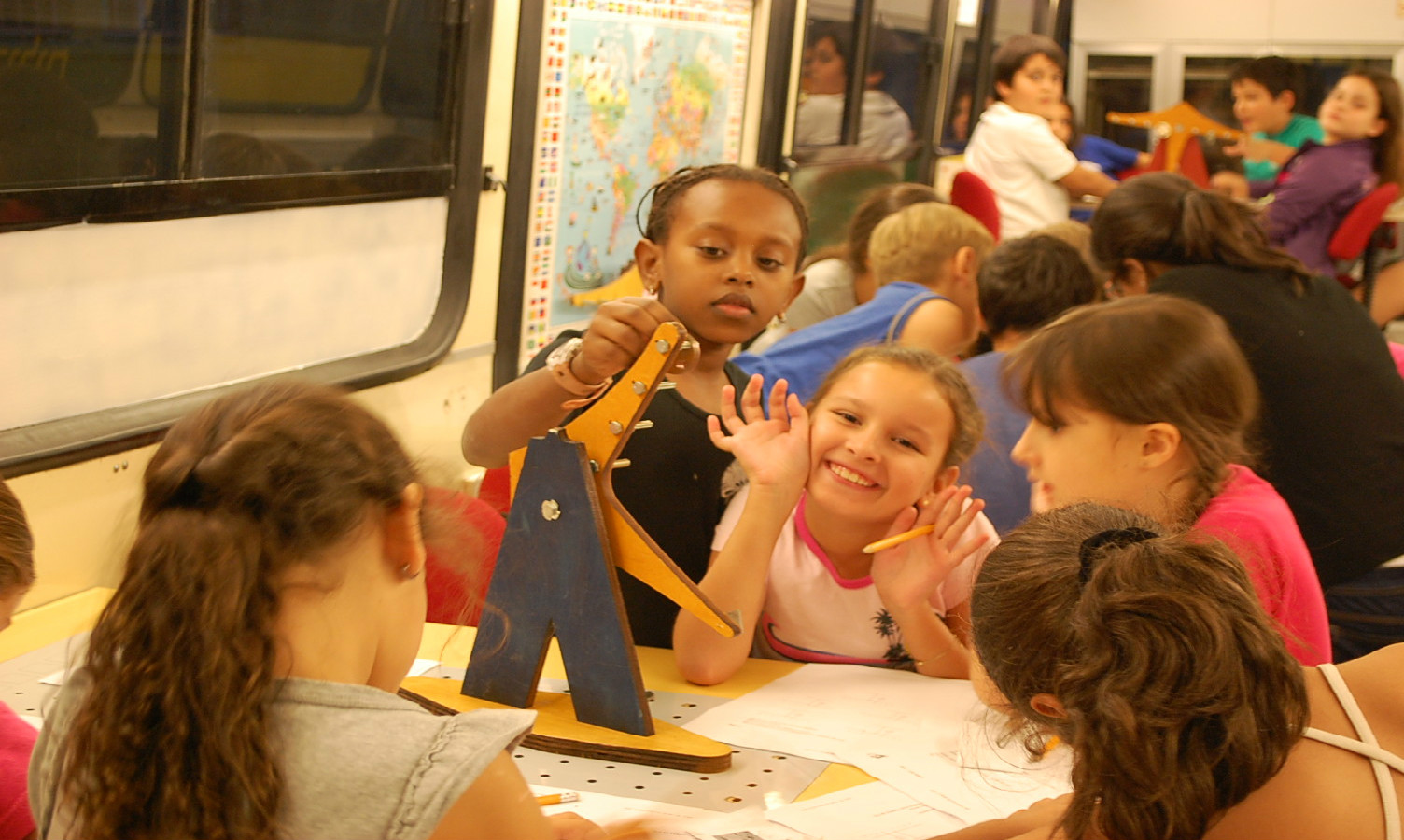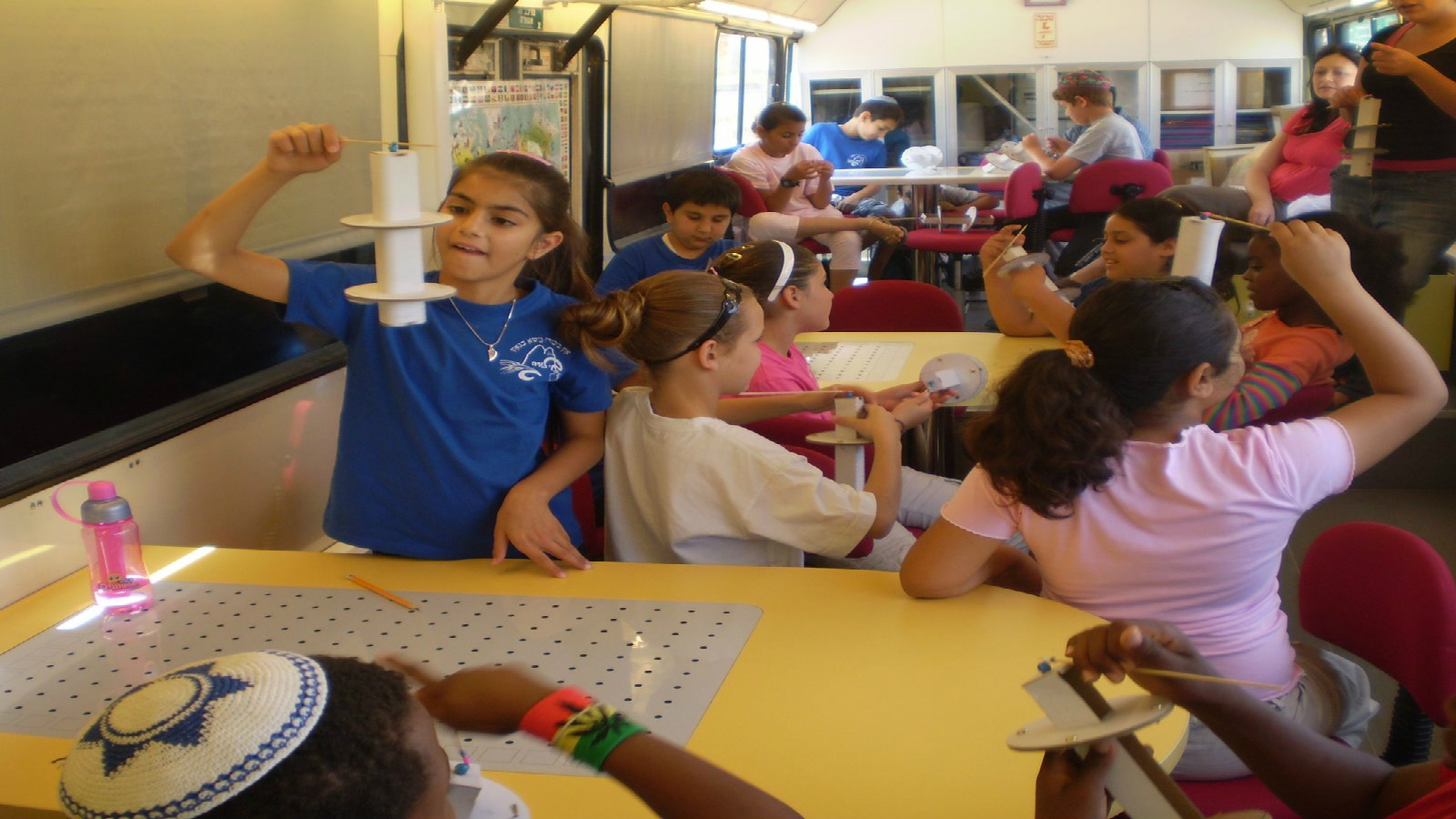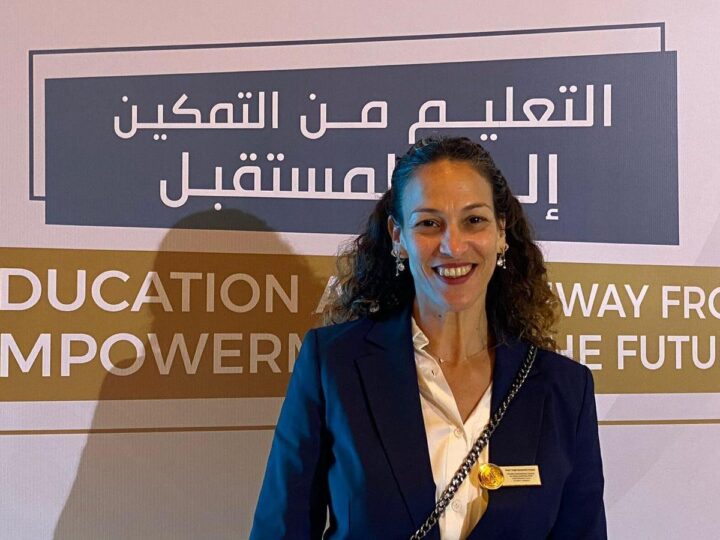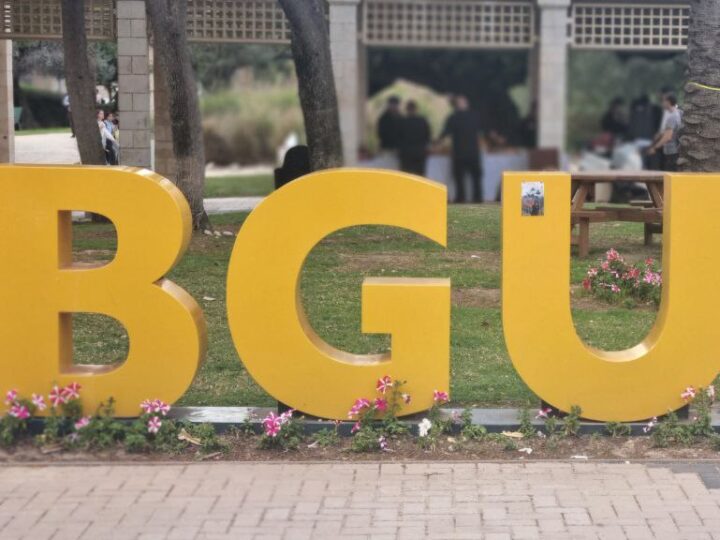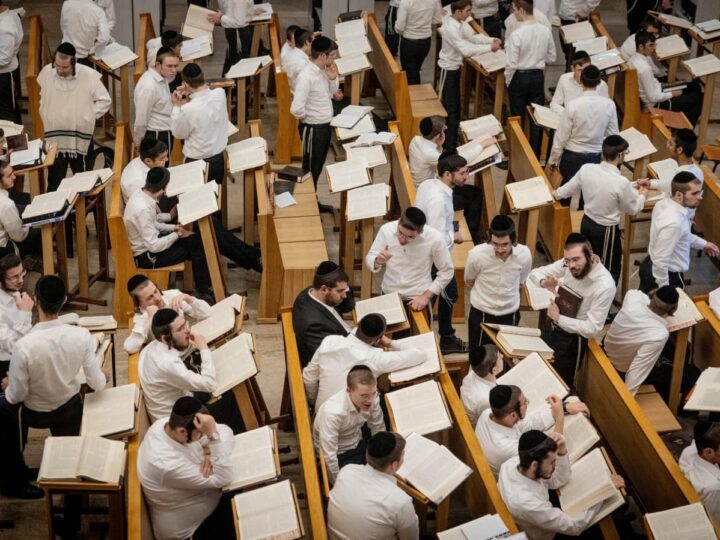Bright yellow Ofanim buses driving around Israel’s geographic and economic periphery don’t bring children to school; they bring school to children.
Inside each bus is a fully equipped mobile lab outfitted to give each third- to sixth-grader a hands-on afterschool learning experience in topics they could not otherwise explore: pre-medicine, robotics, comics, computer animation and gaming software. Next year, another bus will be added where children can develop a mobile app to solve a problem they defined in their community.
The multiple-award-winning Ofanim also offers twice-yearly discovery and empowerment days for participants at institutions such as the Technion-Israel Institute of Technology in Haifa, Bar-Ilan School of Medicine in Safed, and Soroka University Medical Center and Ben-Gurion University of the Negev in Beersheva.
“It’s all aimed at improving their odds of achieving higher education,” says Adir Kan, Ofanim’s chief executive officer.
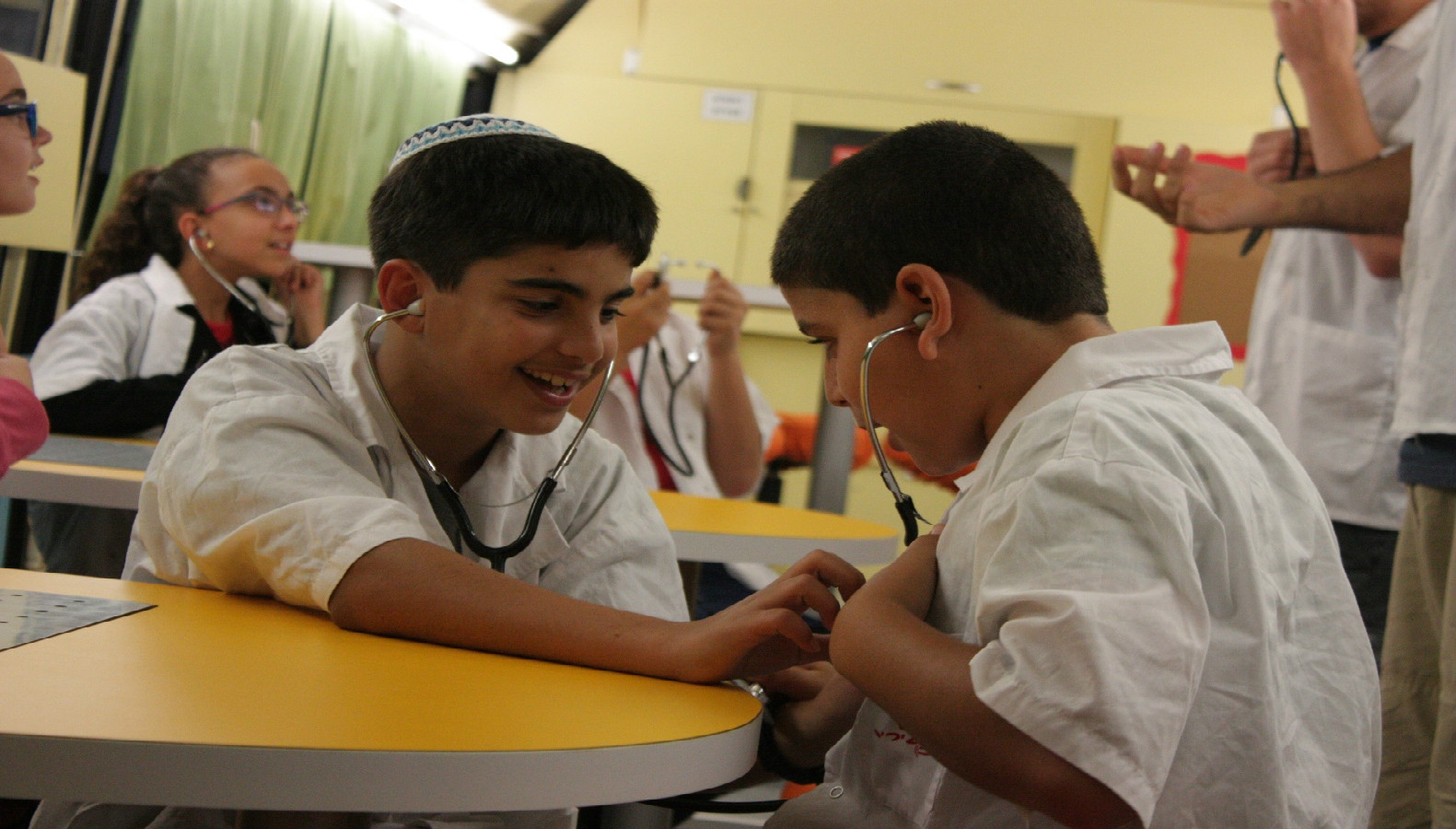
Each program is carefully designed to instill self-confidence and empower underprivileged kids to fulfill their potential.
In a letter to his Ofanim teachers last year, a fourth-grader from Migdal HaEmek thanked them for teaching science and technology in a warm and friendly manner. “It’s important to me that you know I came each time full of curiosity and joy,” he wrote. “You taught me that it is possible to make something from anything, and that there is something hidden to discover and learn even from things that seem like nothing at all.”
The professor and his protégé
The seeds of Ofanim were planted in the 1970s in the Negev city of Beersheva. The Dahan family, including 10 children and two parents of modest means, lived across the road from the new university – though it may just as well have been on a different planet.
Mrs. Dahan was a cook at the local community center, where she befriended a ballet teacher named Madeline Bergman. Mrs. Dahan invited Mrs. Bergman home for lunch one summer day, and she brought along her husband, Prof. Samuel Bergman, cofounder of BGU’s computer-science department. The professor asked Haim, the Dahans’ middle child, if he knew about computers. The ninth-grader could only guess that it had something to do with football (soccer).
“So, the Professor invited me during that summer break to come over to the university to study and become acquainted with computers,” Dahan relates on the website of Friends of Ofanim.
“I was very lucky to receive six private lessons and have the chance to be exposed to computers. Until this day I remember my first visit to the university. Up to that moment, I considered the university to be like Olympus; that it belonged to the gods. When I entered through the campus gates, I felt as if entering a shrine. After my military service, I applied to Ben-Gurion to study computer science.”
Dahan earned a master’s degree from BGU, then followed Bergman’s advice to study for his doctorate in engineering in the United States. He worked for IBM for four years and then founded his own successful software company, which was sold in 1999. After 13 years abroad, he returned to Israel, earned a PhD from Tel Aviv University, and was eager to give back to children with similar background.
“He wanted to replicate the Prof. Bergman experience with other children from the periphery,” Kan tells ISRAEL21c. “He saw how it influenced his entire family; his younger siblings all finished university. As a good business analyst, he looked for a model and saw that in big cities there were good afterschool programs, but not in the little towns of the Negev.”
Ofanim Chairman Oded Hadomi, CEO of Kaizen International Biotech, continues the story: “Every educational nonprofit organization must calculate the cost per child. Many remote villages have only eight or 12 kids per class, so it doesn’t pay for these organizations to implement programs there. Haim concluded that to do something for the long term it had to have mobility, so the same program could be presented at 3:00 in one village and in another at 4:00, and at 6:00 in another.
“He decided to come to the children with a mobile lab equipped with high-end computers and everything else needed to provide cutting-edge instruction. He hired a carpenter and electrician to outfit a bus to his specifications.”
Established in 2004, Ofanim serves more than 45 Jewish and Arab areas in southern and northern Israel, providing 86 weekly activities to some 1,200 children, many from low-income and/or one-parent families.
“We charge a nominal fee – 50 to 500 shekels per child per year — to instill a sense of commitment, but collection of fees is done through the local councils and not through us,” Kan clarifies.
People power
The sheer novelty of the bus-lab is enough to lure many middle-schoolers for a few sessions, says Hadomi. If they choose to continue, it’s due to the dedication of the instructors, mostly college students but also software professionals, healthcare professionals and academics who see their work with Ofanim as a life mission.
“At the end of the day, the most important thing is the people,” Hadomi says. “We require our teachers to be role models who allow the children to dream how they can be university students one day and duplicate Haim Dahan’s experience.”
Children from these areas typically do not expect to earn a college degree and aren’t aware of professional opportunities. For example, Kan relates that before starting Ofanim’s Young Doctors program, a group of fifth- and sixth-grade girls in an ultra-Orthodox town all said they wanted to be teachers. After completing the unit, many of the girls said they’d like to learn veterinary medicine, nursing or midwifery.
“We widen their horizons and succeed in showing them the world is bigger than they thought,” says Kan. “It’s fine if you want to be a teacher, but make sure you know what other choices you have.”
Two independent evaluation reports have shown that more than 90 percent of Ofanim participants gain greater self-sufficiency, self-confidence and motivation along with a more positive attitude toward education in general. The studies also indicate a high level of satisfaction among parents, teachers and administrators in the regions served.
The program’s annual budget is nearly 6 million shekels, or about $1.5 million. Half of this amount must be raised from Israeli sources to match the half donated by Friends of Ofanim in the United States, “making it a true Israeli-American partnership,” Hadomi notes. Among the major supporters of Ofanim are Applied Materials, the Russell Berrie Foundation and the Rashi Foundation.
For more information, contact Resource Development Manager Yasmin Elad, Yasmin@ofanim.org.il or +972-52-7350942.




